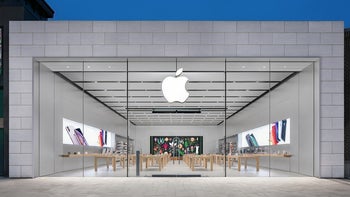Apple Store closures have already caused major decline in US iPhone sales, more to follow

It's no longer a big secret that the coronavirus pandemic has hit the mobile industry hard already, leading to a record-setting decline in global smartphone shipments for the month of February. Looking ahead, the market is expected to post its worst result in a decade when tallying the full-year numbers, which obviously means every single manufacturer is likely to sell fewer handsets in 2020 than 2019.
In many cases, the drops could be quite sudden and abrupt, although it's probably a little early for individual predictions through the end of the year. After all, no one really knows how long people in key markets like the US will need to continue sheltering in place and avoid non-essential trips, like, say, visiting an Apple Store for an unnecessary iPhone upgrade.
What's certainly not too early to conclude is Apple's decision to indefinitely shut down all its physical stores is severely hurting the tech giant's bottom line. Upon carefully examining "spending trends" from around 2 million credit and debit cards, KeyBanc analyst John Vinh believes iPhone sales in the US alone declined by 56 percent in March compared to the same month of last year.
In case that number doesn't sound bad enough, you may want to remember Apple Stores were actually open for the month's first couple of weeks stateside, so there's clearly still room for further deterioration of the company's iPhone sales figures. While you can obviously purchase new devices online in complete safety and never leave your house to pick them up (or opt for curbside pickup), it seems many "iFans" really enjoyed driving to their local Apple Store and buying their products there.
On that note, Vinh is seeing "limited indications online sales have been able to make up for Apple Store closures" in March, and it's unlikely that things will radically change this month. Of course, the iPhone 9 (or 2020 iPhone SE) could invigorate demand a little, but no new device, no matter how exciting or nostalgia-inducing, will change the fact people are much more careful about their spending of late, focusing primarily on "necessities" and essential purchases.














Things that are NOT allowed: